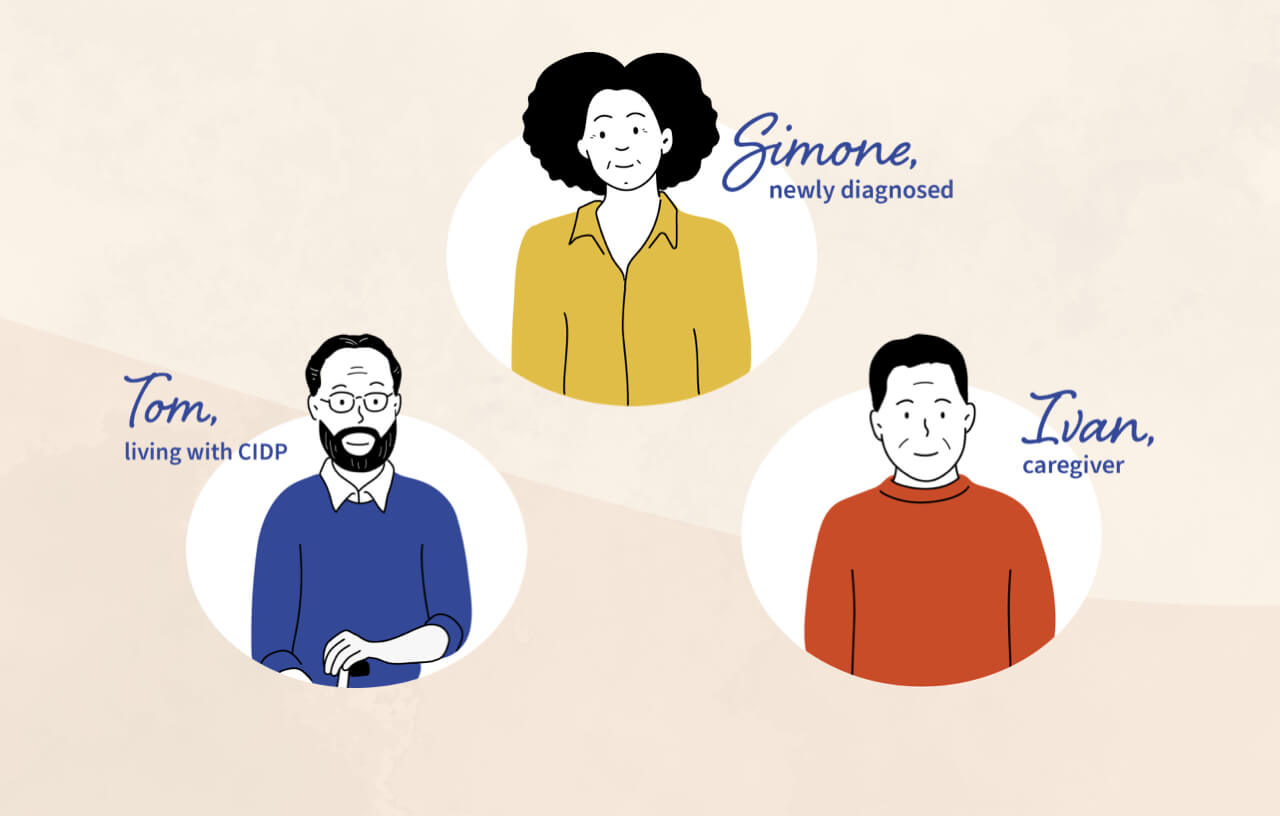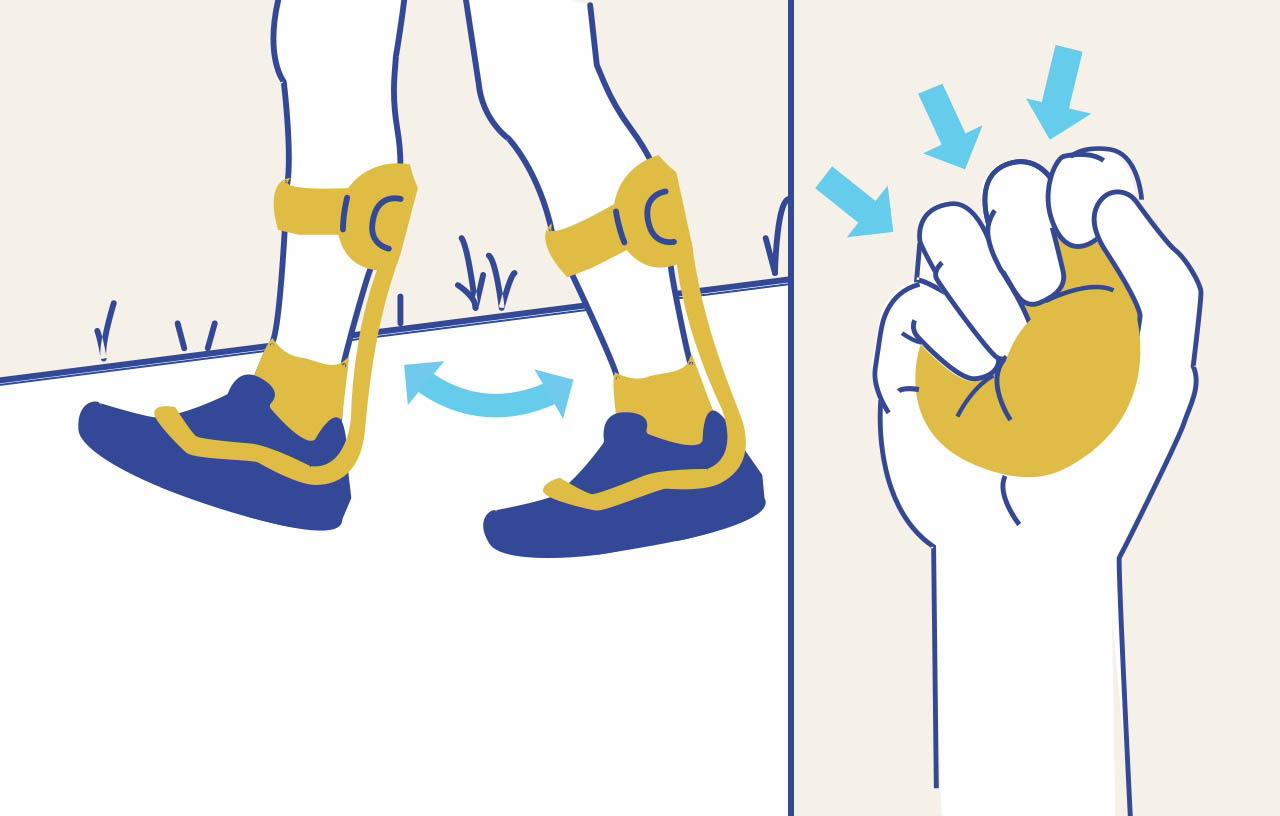Hear from people living with CIDP about ways they navigate changes that CIDP brings—and the emotions that come with it
It’s OK to not feel completely like yourself when you’re dealing with symptoms of CIDP (chronic inflammatory demyelinating polyneuropathy). Here are some stories from others with CIDP that may help you better understand the emotional ups and downs you feel.
When living with a chronic autoimmune condition such as CIDP, you may feel your mood and self-esteem change as symptoms and their severity change. Part of these emotions may be related to the unknown—uncertainty about how your mind and body will react, how you will respond to treatments, how you will handle lifestyle changes—and what the future could hold.
Patients I see who have autoimmune diseases often feel shaken by the fact that they think their body has failed them in some way.
Oftentimes, life changes that may accompany CIDP may impact a person’s self-esteem and body image, according to Kathleen, a Licensed Professional Clinical Counselor.
As someone who lives with a rare autoimmune condition and counsels those with autoimmune disorders, Kathleen is familiar with the feelings of anger, isolation, powerlessness, and betrayal that can result from the diagnosis. “Patients I see who have autoimmune diseases often feel shaken by the fact that they think their body has failed them in some way, and on some level, they feel that they may have done something wrong or that they’ve lost control,” she expressed.
Embracing change
Weakness in the arms and legs, tingling and numbness, and fatigue are some of the more common signs and symptoms of CIDP—but this diagnosis often comes with a drastic change in lifestyle and sense of self. Scott, a longtime dancer and choreographer, became a writer after his CIDP diagnosis in 2015. He found that he had to accept the CIDP diagnosis and the challenges that came with it, in order to preserve his self-esteem and quality of life.
“The number one thing that helped me was to embrace CIDP—not run. Once I could say, ‘This is part of me. This is part of my life now. I have to deal with it. I have to grow with this thing,’ it made it OK.”
“I don’t know if it was God or the universe or something bashed me on the head and said, ‘You’re going to be a writer.’ And that’s what I’ve done. I’m working on two novels. Three of my short stories have been picked up for publishing. You find things to change in your life.”
Boosting your spirits
Caitlyn, a busy mother, student, and model, was diagnosed with CIDP in 2020 after struggling with symptoms since 2019. She makes time for herself each day to keep her spirits up. “Something I do daily for myself is sit in the sunshine and let it soak my skin. This also gives me fresh air and is a mood lifter. I make sure I make myself feel good every day, even on the bad ones.”
Self-care is important, but for Caitlyn, it’s more than just a face mask or hot bath. “It’s mental health, physical health, and emotional health,” she explained.
Committing to doing things that make you feel good may help minimize feelings of sadness or dissatisfaction. So whether that’s writing, self-care, spending time with loved ones, or something else, try to incorporate activities that may balance or boost your mood.
Building a strong support system
In addition to trying to boost your mood on your own, it may be helpful to have a support system that you can count on.
Scott has found that sometimes loved ones don’t understand what CIDP is and how it affects him, so it’s important for him to be honest about his feelings, capabilities, and struggles. “You have to be really detailed with your caregiver; otherwise, they can’t help you,” said Scott.
He explains that it’s necessary to keep your caregiver and support system up to date with everything that is going on with you—both the big details and the small ones. “You don’t want your support system to be surprised.”
As supporters adjust to their loved one’s lifestyle with CIDP, they may be able to provide more helpful suggestions and positive reinforcement as they, too, learn more about CIDP symptoms.
If you choose to remain in joy, you find that the littlest things are worth fighting for.
Enjoying the little things
Navigating the ups and downs of emotions and practicing self-care may not be easy for some people living with CIDP, but Caitlyn shared how finding joy in the little things helps her every day. “We take things a day at a time in my home. The biggest thing I do daily is romanticize my life. I make everything go as if I’m the main character in an award-winning movie.”
“Maintaining a positive mindset is necessary for me. If you choose to remain in joy, you find that the littlest things are worth fighting for.”
To find more ways to help focus on self-care, download this self-care worksheet, which includes journal prompts, tips for boosting your self-esteem, and more.












